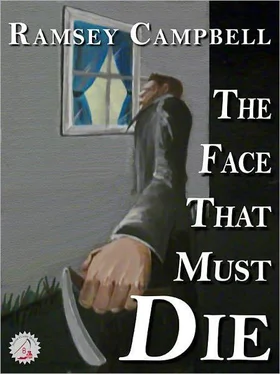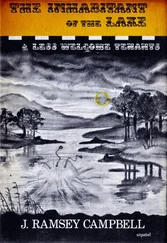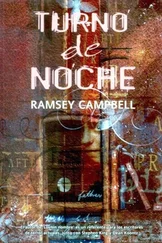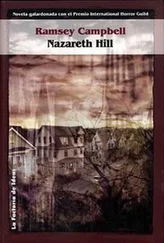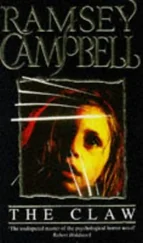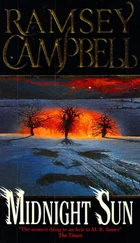Ramsey Campbell - The Face That Must Die
Здесь есть возможность читать онлайн «Ramsey Campbell - The Face That Must Die» весь текст электронной книги совершенно бесплатно (целиком полную версию без сокращений). В некоторых случаях можно слушать аудио, скачать через торрент в формате fb2 и присутствует краткое содержание. Жанр: Триллер, на английском языке. Описание произведения, (предисловие) а так же отзывы посетителей доступны на портале библиотеки ЛибКат.
- Название:The Face That Must Die
- Автор:
- Жанр:
- Год:неизвестен
- ISBN:нет данных
- Рейтинг книги:4 / 5. Голосов: 1
-
Избранное:Добавить в избранное
- Отзывы:
-
Ваша оценка:
- 80
- 1
- 2
- 3
- 4
- 5
The Face That Must Die: краткое содержание, описание и аннотация
Предлагаем к чтению аннотацию, описание, краткое содержание или предисловие (зависит от того, что написал сам автор книги «The Face That Must Die»). Если вы не нашли необходимую информацию о книге — напишите в комментариях, мы постараемся отыскать её.
The Face That Must Die — читать онлайн бесплатно полную книгу (весь текст) целиком
Ниже представлен текст книги, разбитый по страницам. Система сохранения места последней прочитанной страницы, позволяет с удобством читать онлайн бесплатно книгу «The Face That Must Die», без необходимости каждый раз заново искать на чём Вы остановились. Поставьте закладку, и сможете в любой момент перейти на страницу, на которой закончили чтение.
Интервал:
Закладка:
It didn’t sound like an invitation to enter – more like the solution to an annoying problem. A frown joined his stare, urging his visitor to come to the point. Horridge had hoped to ask him a favour in memory of Boaler Street, but hadn’t expected him to be so crabby. He could only say like any other customer “Could you cut me some keys?”
The old man looked suspicious. Had he forgotten how Horridge knew he cut keys? At last he grumbled “I’m not supposed to do that, at home, you know.” But he relinquished the doorframe and turned his back on Horridge, who ventured to follow him.
In the main room the overhead light blazed. Dusty tassels dangled from the lampshade. Bluish daylight seeped through the curtains. Mr Fearon pulled back a shabby screen to reveal his cutter’s tools, as though he had been hiding them from the portrait of Christ on the wall, gazing out of the glittery rays of his halo. The business seemed furtive – but Horridge refused to be made to feel like a criminal. What he was doing was right and necessary.
He took out the moulds. He had a moment of panic: suppose they had been squashed out of shape in his pocket? At first he’d protected them with the cards that bore the photographs, and now they were wrapped in newspaper. He unwrapped them and handed them over.
The old man hardly glanced at them. “These are for your flat, are they?”
“ Yes, of course. I made these impressions a long time ago, in case I ever lost my keys.”
“ It’s the first place I’ve seen round here with two Yale locks in it.”
Horridge felt as though a steel trap had sprung in his belly. “I like to keep my bedroom locked.” His polite determinedly unoffended tone sounded guilty to him.
“ You don’t want to go locking interior doors. If you have burglars they’ll only break the locks and cause more damage.”
That was none of his business. Though his body felt tightly entangled in nerves, Horridge refused to answer. After a while the old man stared hard at the moulds. “What kind of clay is this?”
“ Just some that I used to play with.”
He hadn’t anticipated that question; his lie was jerky, nervous. But his reference to the past seemed to mellow Mr Fearon. “Aye, those were the days,” the old man said. “It was a good street. You knew everyone then. Not like this bloody transit camp.” The sense of shared memories made him friendlier. “All right, I’ll make your keys for you. I’ll whiz round to you with them tomorrow. Whereabouts do you live?”
Nobody must know where he lived, not now.
The skin of Horridge’s face felt as though it were shrinking. “If it’s all the same to you,” he managed to say between stiffening lips, “I’ll wait for them.”
“ Well, it’s not the same to me at all. It’s a damned long job, son. Did you know that?”
“ No, I didn’t. I’m sorry.” Before the old man could win the conversation, he added hastily “It’s urgent, you see. I can’t get into the house without it.”
“ You’ll just want the front door key, then. Which one is that?”
Oh God. God, no. Could the old man see the sweat exploding all over Horridge’s body? “I won’t be able to get into my bedroom either,” he complained.
“ You’re in a bad way, aren’t you?”
Unsure what the comment referred to, Horridge didn’t dare answer. “All right, I’ll do it now,” the old man sighed at last, shaking his head. “Just you wait there and don’t start getting restless. This is going to take longer than you think.”
He plodded behind the screen, and drew it closed behind him. Eventually he emerged, bearing some object which he concealed from Horridge, and trudged into the kitchen. Horridge heard the flare of gas, and its monotonous breath, sometimes interrupted. After a considerable time Mr Fearon pottered back. The screen creaked shut.
His comings and goings seemed to dawdle on for hours. Each time he appeared he made some remark, as though he’d spent the interval thinking of it. “I suppose you still miss your father. Always good for a laugh, old Frank.”
“ There aren’t many like him these days.”
“ Brought you up single-handed and looked after you when you had the accident, with never a word of complaint.”
Horridge could only agree inarticulately; he felt at the mercy of the old man’s goodwill. Once Mr Fearon said “Getting much work?” Perhaps he was growing senile. And once, to Horridge’s dismay, he said “Just keep your ears open for the door. I’ve got someone coming for keys.”
The cramped room, the old man’s small sounds which Horridge could neither ignore nor interpret, his infuriating slowness, his secrecy which preyed on Horridge’s imagination – everything reminded him of life with his father. His hands moved restlessly, neither quite opening nor becoming fists: he felt he was a puppet of his nerves. When the metallic shrieking began, it seemed to drill deep into his teeth. At least it meant that the ordeal was almost over, for the old man soon emerged with two keys. Horridge clasped them gratefully. “How much do I owe you?”
“ How much is it worth to you?”
What was that supposed to mean? What did his stare imply? Perhaps that he wouldn’t ask a direct question so long as his customer wasn’t too blatant. Angry to be made to feel guilt but helpless, Horridge had no idea what to reply.
At last the old man said wearily “Oh, give us two quid. That won’t break you, will it?”
Perhaps he’d hoped to be offered more – but he could be no poorer than Horridge. He crumpled the notes in his hand as if they were litter, and plodded to let Horridge out. But Horridge said “I’d like my impressions back, please.”
“ Right enough, you wouldn’t want to be leaving them. They’re no use to anyone now, son. I had to crack them.”
“ I’d still like the clay.”
Not until he was crossing the third square of concrete patched with uncombed grass did he realise why Mr Fearon had stared sideways at him. The old man felt suspected now: he thought Horridge hadn’t trusted him to dispose of the clay. Horridge grinned to himself as he limped to the shops. Mr Fearon wouldn’t dare betray him.
Now he must act fast, just in case the painter mentioned him to Craig despite her promise. After all, why had so many pieces been cut out of the newspapers in her flat? Could she have been making sure that none of her visitors saw Craig’s face? He bought a plastic wallet full of marker pens and hurried to his flat.
He lifted his newspapers from their lair. Eventually he found the photograph: the wardrobe in which the first victim had been discovered, with one word hacked out of the wood of the door: BITCH.
He stared at his blank piece of cardboard, then he grinned. Of course! He took it to the window, and gazed at the graffiti that crawled over the fence. He’d never thought he would be grateful for that eyesore. But now, as he wrote BITCH with the pens, he copied the discords of colour, adding flourishes and elaborations as his memory prompted. At last he pinned the notice to his bedroom door and admired his handiwork. It reminded him of the paintings that cluttered the walls in the painter’s flat. He grinned, wiping his hands. He was convinced, and he was sure his victim would be: the writing looked exactly like Fanny Adamson’s signature.
Chapter XI
Craig had one foot in the bath when the telephone rang.
The water was warm around his ankle. Should he answer the call, and perhaps be made to feel worse? By the time he had dried his foot and inserted it into his slipper, the ringing had ceased. He sank into the water, grateful for its soothing embrace. He’d had a bad enough day already.
Читать дальшеИнтервал:
Закладка:
Похожие книги на «The Face That Must Die»
Представляем Вашему вниманию похожие книги на «The Face That Must Die» списком для выбора. Мы отобрали схожую по названию и смыслу литературу в надежде предоставить читателям больше вариантов отыскать новые, интересные, ещё непрочитанные произведения.
Обсуждение, отзывы о книге «The Face That Must Die» и просто собственные мнения читателей. Оставьте ваши комментарии, напишите, что Вы думаете о произведении, его смысле или главных героях. Укажите что конкретно понравилось, а что нет, и почему Вы так считаете.
